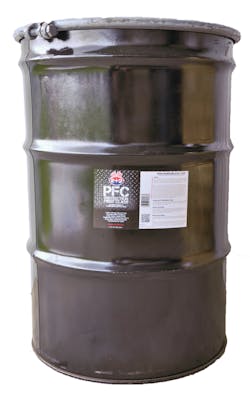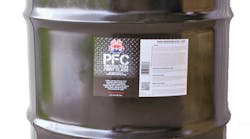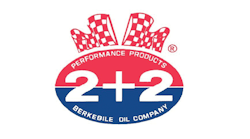Berkebile’s Protection First Class Penetrates, Lubricates and Prevents Corrosion
Berkebile Oil Co. announced the introduction of its new Protection First Class (PFC) penetrating lubricant and rust inhibitor Aug. 13.
The innovative product is the first of its kind for Berkebile and represents the company’s entry into a new category of environmentally responsible lubricants. In formulating PFC, the company chose to use 99 percent pure cosmetic-grade lanolin as one of the product’s key ingredients.
Traditional penetrating lubricants use solvents to lower the viscosity of the oils they contain, enabling them to flow more easily or to be dispensed as a spray. The solvents make the lubricants runny, and in practical application, more than 80 percent of the applied substances are lost to runoff. Additionally, solvents break down some of the essential properties of the oils they mix with and, after quickly evaporating, leave a dry, varnish-like residue that can collect dirt and may actually increase surface friction.
Protection First Class is different by design. The product is solvent free, but is formulated to spray easily and to stick to surfaces tenaciously. As Protection First Class is being applied, its high viscosity allows almost 100 percent of the product to stick to the targeted application area. After application, PFC remains soft and pliable and forms a protective, friction-reducing film that delivers superior lubrication and anti-corrosion performance. In the case of small nicks and abrasions, the PFC coating will actually heal itself by flowing to fill small gaps in its protective surface, sealing out moisture and oxygen.
“In salt spray tests we’ve conducted, PFC lasted eight and a half weeks longer than five of the biggest selling solvent-based lubricants, which all failed between 24 and 96 hours,” Kirk Sherbine, president of Berkebile Oil, said. “Protection First Class lasts 15 times longer and gives the marketplace an intelligent, highly effective, environmentally responsible alternative to solvent-based lubricants.”
Solvents have toxic biochemical, physiochemical and neurochemical effects on organic tissues of all types. Protection First Class is completely solvent free and formulated with top-quality, virgin ingredients, including corrosion preventives, lubricants and naturally occurring, completely biodegradable lanolin. Unlike cutting equipment coated with solvent-based lubricants, blades coated with PFC won’t cause browning or chemical burning when coming in contact with plants.
“We supply automotive garages, small-engine shops, truck garages, body shops and others, and Protection First Class is getting positive remarks from customers who have been introduced to it,” Earl Peachey, founder of Pennstone Supply, said. “We are glad to provide a quality product that will give protection from rust and corrosion and that is safe for the environment, and we look forward to discovering how many different uses this product will have for our customers.”
The PFC woolwax lanolin formula has been classified as a non-hazardous, nontoxic substance. Even in harsh arctic conditions, Protection First Class won’t freeze and retains its lubricating characteristics, protecting metallic surfaces and allowing machinery, chains and moving parts to operate smoothly while its slick surface resists the accumulation of road debris and other foreign substances. PFC is nonconductive and can be used to protect battery terminals and electrical connections of all types. The product can be used to create a moisture- and dirt-resistant coating on painted surfaces and can enhance the appearance of faded finishes, much like the effect of paste wax.
“We have snow removal contracts and equipment operating throughout West Virginia, Maryland and Pennsylvania and we can’t afford to have equipment fail in the field,” Roger Newman, president of R.C. Newman Excavating, said. “During the brutal winter of 2013/14, we field-tested Protection First Class, applying it to every electrical connection, relay switch and terminal connection, and our electrical problems literally vanished. It also prevented salt buildup on our spreaders and minimized equipment corrosion.”





